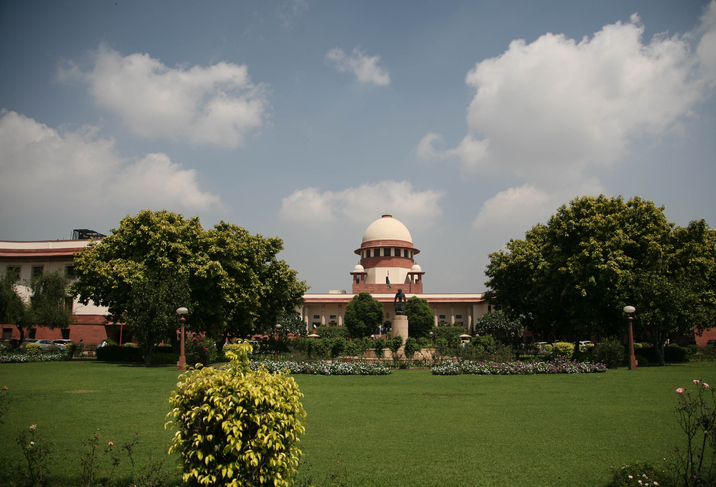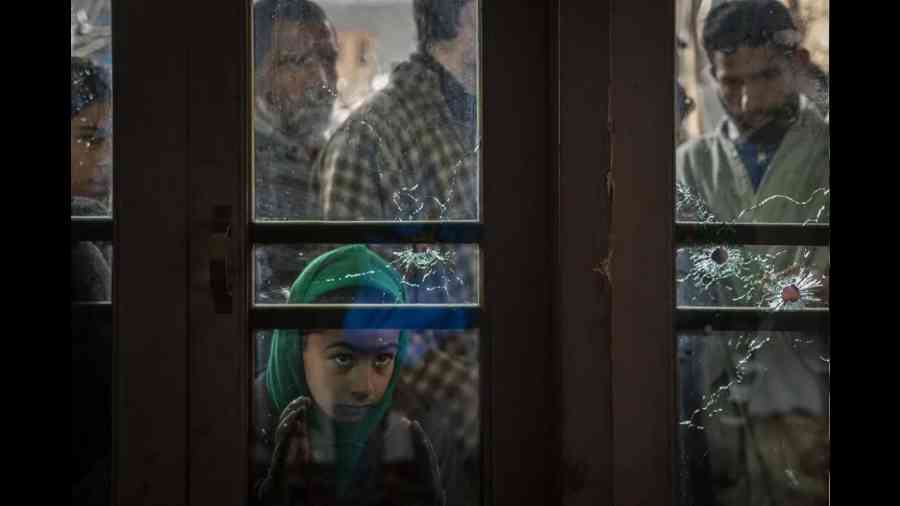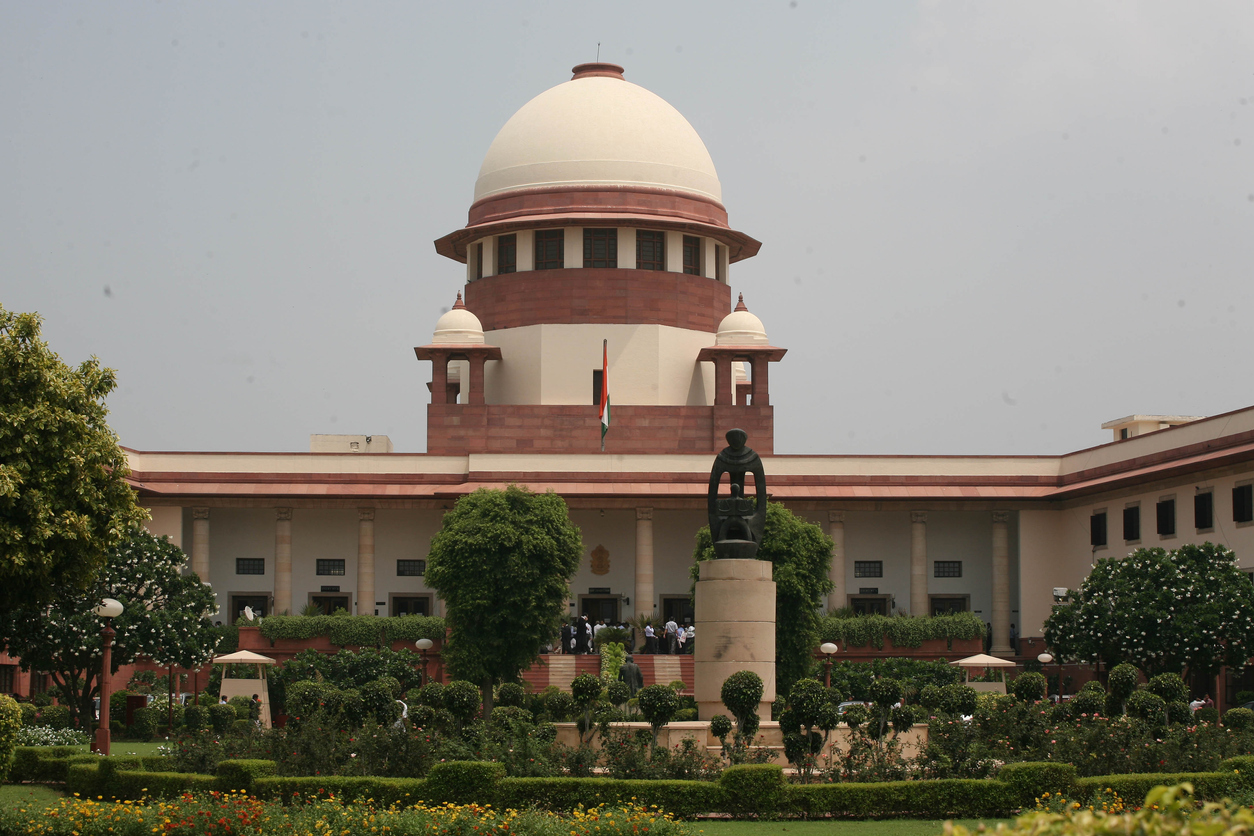
Democracy: Free, fair, and so disproportioned, it would make Puttaswamy cry
Voting Rights of Prisoners
**Tarun Ranjan
Loktantra without Lok?
The fight to Raisina Hills has already commenced in a 7 phase-long mammoth election. The 2024 Lok Sabha election is anticipated to be one of the most financially substantial and fiercely contested elections. With over 90 crores registered voters to woo, political parties and candidates are estimated to spend over 1.2 trillion rupees in the elections, per the Centre for Media Studies. If these numbers hold, it stipulates that the gross expenditure for the 2024 Lok Sabha elections would surpass twice the amount spent in the 2019 Lok Sabha polls. While the State spends a mere 10% of the total election expenditure, the money and muscle power play a significant role. The latest data shows that the State spent 38.70 billion rupees during the 2014 Lok Sabha polls. These numbers highlight the significance of financial muscle during elections.
In this highly anticipated election, India will decide whether to give Prime Minister Narendra Modi an unprecedented third term or to change the regime at Raisina. However, the nation of 1.4 billion people will essentially forget that the Right to Vote is not accessible to nearly 5 lakh of the nation’s population – the population of prisoners. Not only does this takes away the voting rights of prisoned individuals, but it also introduces a new toil by stripping away the rights of those awaiting trial i.e. undertrial prisoners , comprising more than 75% of the overall prison population. This raises the question: why should one face punishment before their guilt is established?
The Supreme Court in Mohinder Gill v. Chief Election Commissioner highlighted the importance of voting, observing that “Nothing can diminish the overwhelming importance of the cross or preference indicated by the dumb sealed lip voter. That is his right, and the trust reposed by the Constitution in him is that he will act as a responsible citizen in choosing his representatives for governing the country“.
Given the possible impact of these elections, the conversation on the voting rights of undertrial prisoners is imperative. While it is agreed that the right to vote is a statutory right, it is fundamental to a democracy. Democracy is not a pick-and-choose game where the State can decide who can or cannot vote without a reasonable classification.
Intention not advanced, the application even worse.
Sub section 5 of Section 62 of the Representation of People Act, 1951 (RPA) restricts all those who are confined in prison, including those who are convicted, under trial, in lawful police custody, and in police custody during investigation, from exercising their right to vote, while a convicted person out on parole and an undertrial person out on bail are allowed to vote.
The Supreme Court observed that this legislature intends to prevent the criminalization of politics. Keeping in sight the observation of the Supreme Court, one has to assume that a convicted individual standing for office will lead to the criminalization of politics. Even if we acknowledge the potential for convicts to influence politics through voting while serving their sentences, there remains the question of how the voting of undertrials would lead to the criminalization of politics. It neither prevents criminals from entering politics nor furthers the legislative goal.
The word ‘confinement’ used at the beginning of the provision is also ambiguous. This is because undertrial prisoners are also “confined” without their crimes being proven. If the object of this provision is to prevent criminals from diluting the election procedure and system, then why are those not convicted prohibited from exercising their right to vote?
Undertrial prisoners are not declared guilty of a criminal act by any Court of law; therefore, preventing them from enjoying their constitutional right to vote is against natural justice and defeats the whole purpose and object of the provision.
This provision is a direct attack on Article 14, which guarantees equality before the law and equal protection of the laws to all persons. If the law makes a classification, it must be shown that it has a rational nexus with the object sought to be achieved. Article 14 prohibits an unreasonable classification made by a combination of laws.
The Supreme Court in 2018 held the right to franchise as the bedrock of democracy. The legislative intent of the section is to prevent criminalization of politics, but there exists an apparent loophole in this reasoning. Classification between undertrial persons in jail and outside jail is arbitrary and devoid of logic.
The ‘classification test’ as observed by The Supreme Court in State of West Bengal v. Anwar Ali Sarkar mandates that for a law to withstand scrutiny under Article 14, two conditions must be met:
(a) there must be a clear and understandable distinction between individuals or groups subjected to differing treatment and
(b) there must be a logical connection between that distinction and the State’s objective in enacting the law.
While it may be accepted that the differing treatment between disenfranchised undertrial prisoners and those outside of prison, such as individuals on bail or parole, who retain voting rights, is clear and understandable (i.e. their geographical location), this distinction fails to meet the latter part of the classification test. The logic that voting by accused persons out on bail will not result in the criminalisation of politics, whereas voting by imprisoned undertrials will, has not been made clear.
Also, the State of being ‘confined’ remains subjective and misleading. In a justice system aiming to see all equal before law the financial stronghold of an individual often makes the lines murky. Bail will be granted if the requisite amount of money can be provided; otherwise, prisoners cannot exercise their right to franchise.
Thus, someone under-trial is more likely to remain a prisoner for a longer duration if they are poor enough not to be able to ‘pay’ for bail than a financially secure individual. This leads to the assumption that the liberty of a rich man holds more importance than that of the masses. This raises a question about the laws of equality, leaving one to wonder why financial incapacity puts one in greater danger of being in prison?
The goal of a policy-driven socio-economic revolution of our constitution cannot be fulfilled until the poorest and vulnerable sections of our society are kept away from the fundamental exercise of voting. The issue of the inability of even one of the undertrials to avail of the provision of bail due to economic disadvantage must be addressed.
Also, the entire argument for the ban that this sub-section furthers the legislative aim of preventing criminalization falls to the ground when one delves deeper into the RPA. Section 8 (3) of the Act allows convicted criminals serving a sentence of two years or less to contest elections. Even if one agrees that the blanket ban under 62(5) furthers the legitimate aim, would this sub-section not negate all the arguments against removing the ban?
On one hand, this legislation allows convicted individuals to contest polls and on the other hand, it restricts the voting rights of under-trial prisoners on the pretext that their vote would lead to criminalisation. This classification and distinction make no legal sense.
This very contention was also raised in Anukul Chandra Pradhan vs Union Of India, where it was argued that if preventing inmates from voting is necessary to “avoid the criminalisation of politics and maintain election integrity.” Then, it should have also been illegal for inmates to run for office since, if they did, their election to the legislature would make it simpler to criminalise politics.
Such disparate treatment undermines the principle of equal treatment before the law but fails to substantiate its basis on reasonable grounds. The argument posited for the blanket ban, purportedly to prevent the potential criminalization of the electoral process, lacks empirical support and fails to withstand scrutiny of Article 14. This incongruity becomes more pronounced when juxtaposed with the allowance for convicts to engage in electoral activities under certain conditions. This discrepancy undermines the fundamental tenet of fairness within the legal framework, as it results in the arbitrary denial of voting rights to a specific subset of individuals, namely undertrial prisoners, without a justifiable basis.
The apparent contradiction between the blanket ban on voting rights for undertrial prisoners and the allowance for convicts to participate in electoral processes reflects a departure from the principle of equitable treatment. It raises concerns regarding the coherence and reasonableness of the legislative framework.
Puttaswamy is crying
In Dev Singh v. Punjab Tourism Development Corporation Ltd., the Supreme Court held that the doctrine of proportionality states the premise that the means used to fulfil the objective should be narrowly tailored and the least restrictive means per se.
What is the proportionality test?
(A) The measure restricting a right must have a legitimate goal (legitimate goal stage) & (B) The measure must be a suitable means for furthering this goal (suitability or rational connection stage).
The legislature intends to prevent the criminalization of politics. While allowing convicts to stand in elections can lead to the criminalization of politics, the question arises: how does the act of voting by an undertrial prisoner lead to said criminalization? The provision restricting a right does not further the legislative goal.
(C) The measure must be least restrictive and equally effective (necessity stage). &
(D) The measure must not disproportionately impact the right holder (balancing stage).
Around 4 lakh individuals, amounting to over 75% of the prison population, are undertrial. The measure restricts the rights of such a large population without considering the presumption of innocence.
In this context, it is evident that Section 62(5) of the RPA fails to satisfy the criteria and runs counter to the principles established in the landmark Puttaswamy judgment.
It is essential to examine how the voting rights of undertrial prisoners accord the purported goal of preventing the criminalization of politics. The provision, which restricts undertrial prisoners from their right to vote without considering the specifics of the case, lacks a rational nexus to the legislative aim. By imposing a blanket ban, it fails the suitability or rational connection stage of the proportionality test. It undermines the fundamental principle of presumption of innocence and disproportionately restricts the rights of undertrial prisoners without reasonable classification.
Section 62(5) disenfranchises a large segment of individuals, regardless of their innocence. It undermines the fundamental principle of presumption of innocence and disproportionately restricts the rights of undertrial prisoners without reasonable classification.
A look at our counterparts
Section 21 of the Universal Declaration of Human Rights accords universal suffrage to all adults, with no bar for age, gender, or incarceration status.
Looking at the status of voting rights for undertrial prisoners worldwide reveals different patterns. In the United Kingdom, the wording of section 3 of the Representation of People Act 1983 excludes convicted prisoners and those serving their sentence in the community from the ban. This means the following prisoners can vote:
- Those held on remand awaiting trial/ sentencing.
- Civil prisoners– usually those in prison for failing to pay fines, debts or contempt.
- Offenders on home detention curfew or released on temporary license.
In Canada, in Sauve v. Canada, the Court held that the Government had offered no credible theory about why it should be allowed to deny a fundamental democratic right as a form of punishment. Nor could it be regarded as a legitimate form of punishment as it was arbitrary – it was not tailored to the facts and circumstances of the individual offender and bore little relation to the offender’s particular crime – and did not serve a valid criminal-law purpose, as neither the record nor common sense supported the claim that disenfranchisement deterred crime or rehabilitated criminals.
The Constitutional Court in August vs Election Commissioner in South Africa underscored the importance of upholding the voting rights of awaiting trial prisoners. It highlighted that many individuals in this category were detained due to inability to meet bail or fine requirements, often for non-serious offenses.. By ordering the Electoral Commission to facilitate voter registration and voting for eligible awaiting trial prisoners, the judgment emphasized the fundamental democratic principle of universal adult suffrage. It provided guidance on interpreting residency criteria for prisoners in electoral laws, ensuring equitable access to the electoral process for all citizens, including those awaiting trial.
The right to franchise is a fundamental democratic right in a free and fair democracy. The Right to Vote, while, a statutory right, is also fundamental to a democracy. General comment number 25(48), adopted by the International Covenant on Civil and Political Rights (ICCPR) as ratified by India on 23rd January 1982, clearly states that confinement in prison should not bar an individual’s right to the franchise.
Conclusion: Unreasonable, disproportional and arbitrary.
It is important to delve into the concept of Intelligible Differentia to better understand the different classification of voting. Intelligible Differentia asserts equal protection of the laws and does not demand uniform treatment of all individuals without any differentiation. Instead, it ensures the consistent application of the same laws to all individuals in comparable circumstances, devoid of discriminatory treatment.
There exists no Intelligible Differentia here; under trials, in jail, they are devoid of their voting rights, but under trials and convicts outside of jail can not only vote, and convicts serving sentences of 2 years or less are even allowed to contest elections.
There is no legitimate aim furthered by 62(5). No rational reasoning exists in restricting the fundamental democratic right to under trials. The doctrine, established in EP Royappa, defines “manifest arbitrariness” as actions undertaken in a capricious, irrational, or undetermined manner.
The doctrine can be understood as any act founded on prejudice or preference rather than on reasons or facts. Whenever the process of decision-making and the decision are based on irrelevant facts while ignoring relevant considerations, such actions reflect arbitrariness. Legislative enactments must be based on discernible principles, and the impugned act must be reasonable in order to satisfy the test of arbitrariness. Where the procedure of decision-making is followed but reasons are not recorded, such actions fall under arbitrariness. The doctrine emphasizes that acts characterized by arbitrariness are inherently unequal in political logic and constitutional law, thereby violating Article 14.
Consistent with this, the restriction under section 62(5), RPA, is arbitrary because it is grounded in an unreasonable classification, not supported by fairgrounds, and not driven by an intention to serve a public purpose. Much like a puzzle missing a piece, the blanket ban on undertrial voting fails to form an intelligible picture, leaving the backdrop of justice incomplete.
**Tarun Ranjan is a second-year student at National Law University Lucknow, with a keen interest in constitutional law. His current academic focus revolves around exploring the intricacies of electoral rights, their ramifications, and the transformative power of voting.
Disclaimer: The views expressed in this piece are of the author alone and do not necessarily align with the views of the Vidhi Centre for Legal Policy.


